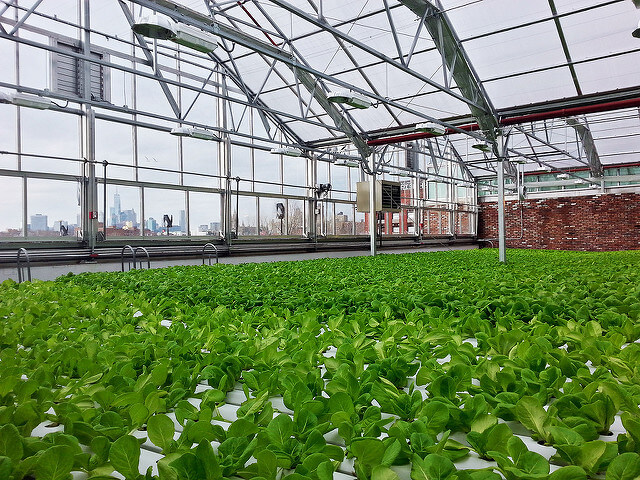E.ON looks to local food production for using waste heat

In Innovation Spotlight, we explore some of the most promising innovations from around our community. This week, we take a look at Climate KIC’s Open Innovation Competition on the use of waste heat to produce fish, vegetables and other produce suitable for local cultivation in Sweden.
The recovery of industrial waste heat is a well-established route to improving the energy efficiency of Europe’s carbon-intensive industries. Industrial waste heat is most often valorised in district heating or electricity generation, lowering energy costs — and emissions — by reducing primary energy consumption.
The Port of Rotterdam Authority, for example, warms 16,000 households using residual heat released from the Shell Pernis refinery, while Stockholm is looking to supply 10 per cent of the city’s residential heating demand through excess heat recovered from data centres.
But while district heating has been a major end use, attention is now turning to other ways to make use of recovered waste heat. E.ON, ICA Fastigheter and Veolia to explore how waste heat might be used to produce fish, vegetables and other produce suitable for local cultivation around Sweden.
Together, the consortium launched a €210,000 open innovation competition, Urban Food from Residual Heat, seeking new approaches to the technical, bio-production and business challenges in bringing together urban agriculture and waste heat recovery — two crucial components of a zero-carbon city.
Three teams – Urban Ecosystems, Samraekt and Season 5 – remain in the competition, with the winner being announced at the Food and Towns conference, held in Malmö.
We spoke to Sonny Strömberg, Head of Special Projects, Business Innovation at E.ON about why the European energy firm is backing the project.
Why is E.ON interested in innovation to re-use residual heat?
We see it as part of our future. We have to change our business model to better reflect what customers need and want in the future. We cannot continue to do what we always have done. Innovation is the key. Also when we’re talking about this competition, it’s about using surplus heat for green gardens or fish farms in urban environments. As an energy provider and district heating player, we can play a role in that development and the realisation of such systems.
Why is the consortium launching an open innovation call, rather than taking other innovation approaches?
We have a lot of innovation projects and processes internally, but we believe that we must also collaborate with others; with other organisations from different industries and other sectors to come up with the real innovative ideas and connect competencies in different sectors that complement each other.
We come from the energy side. We know energy and we know heat production, distribution and sales, but we don’t know much about green gardens and fish farms, and the needs and the challenges on this side. If we’re going to realise and make something new and innovative in this area then we have to collaborate.
And why not an open innovation competition? We could pick up the phone and call green gardens, fish farm owners or entrepreneurs with the right mind and vision in this area, but this might not result in the best ideas and the best opportunities. So I think an open process is a great idea. It’s not maybe the best for all innovation processes, but in this case it’s right.
What role does E.ON see for bigger energy companies in urban agriculture?
The basic question or challenge, here, is to make use of the surplus heat in a feasible and optimal way for this type of application. That surplus heat can be produced in any industry, a grocery store, or wherever. It has to be captured somehow, and then distributed to the fish farm, or green garden, and make it available and possible to use there. Of course, we have a role there [in the supply].
August 2018 update – The three remaining teams in the competition – Urban Ecosystems, Samraekt and Season 5 – have submitted their final proposals On 19 September 2018, the winner will be announced at the Food and Towns conference, held in Malmö.
The conference will address whether it is possible to achieve a food production of importance in cities. Experiences and ideas from different cities will be presented together with experiences and views from companies, organisations, authorities and research.
You can apply to attend here -> (or apply here for the original Swedish language application form)
